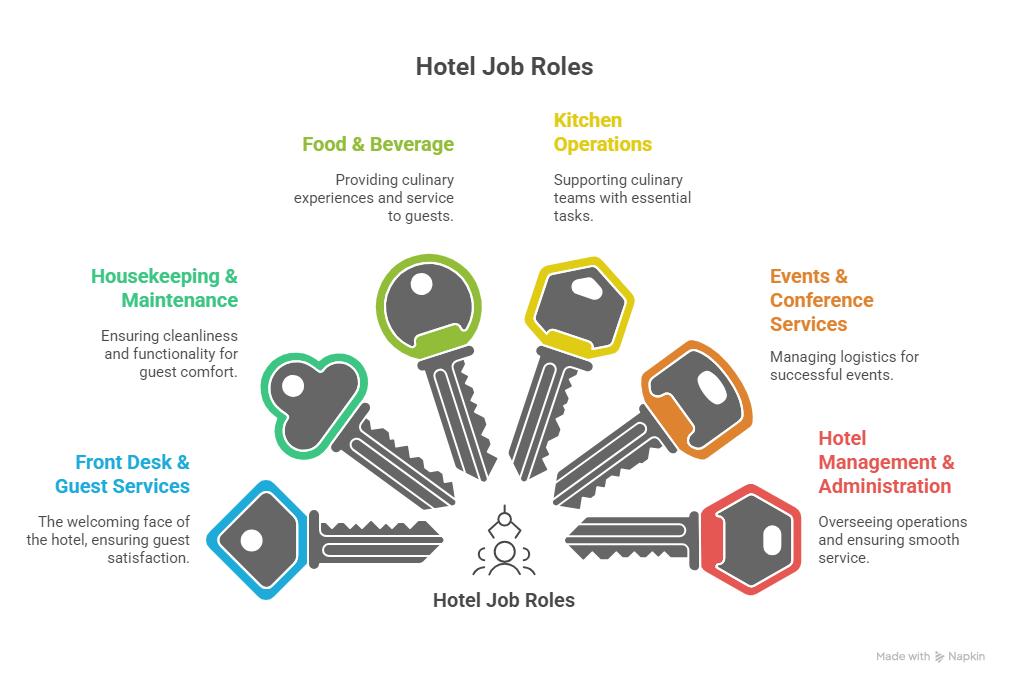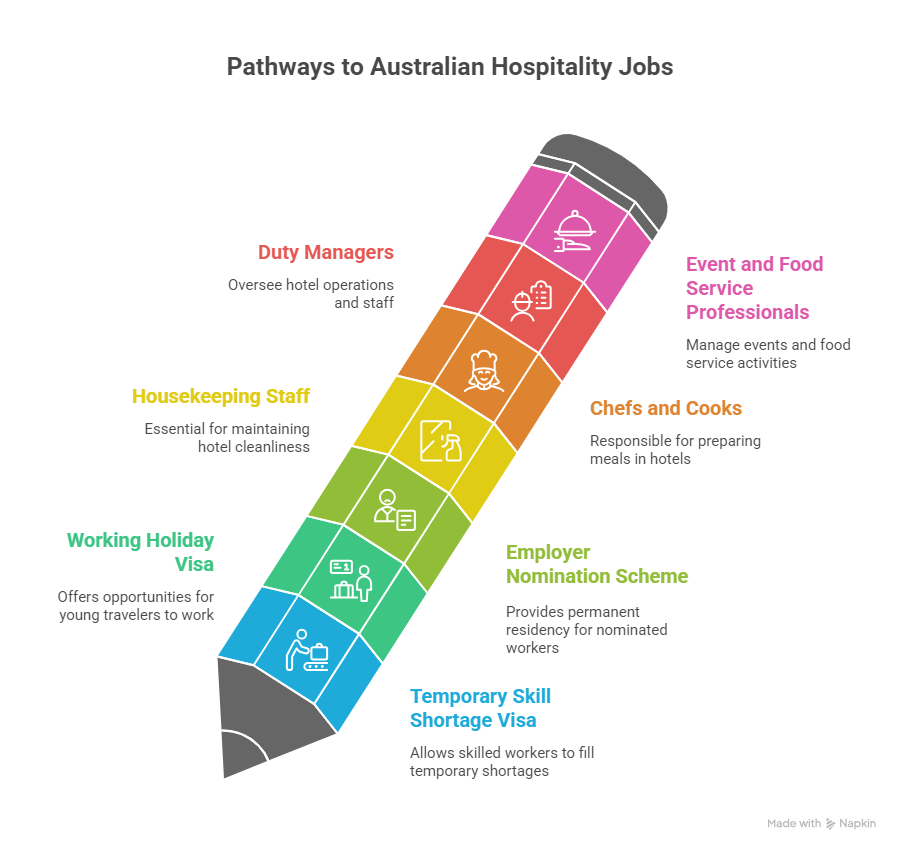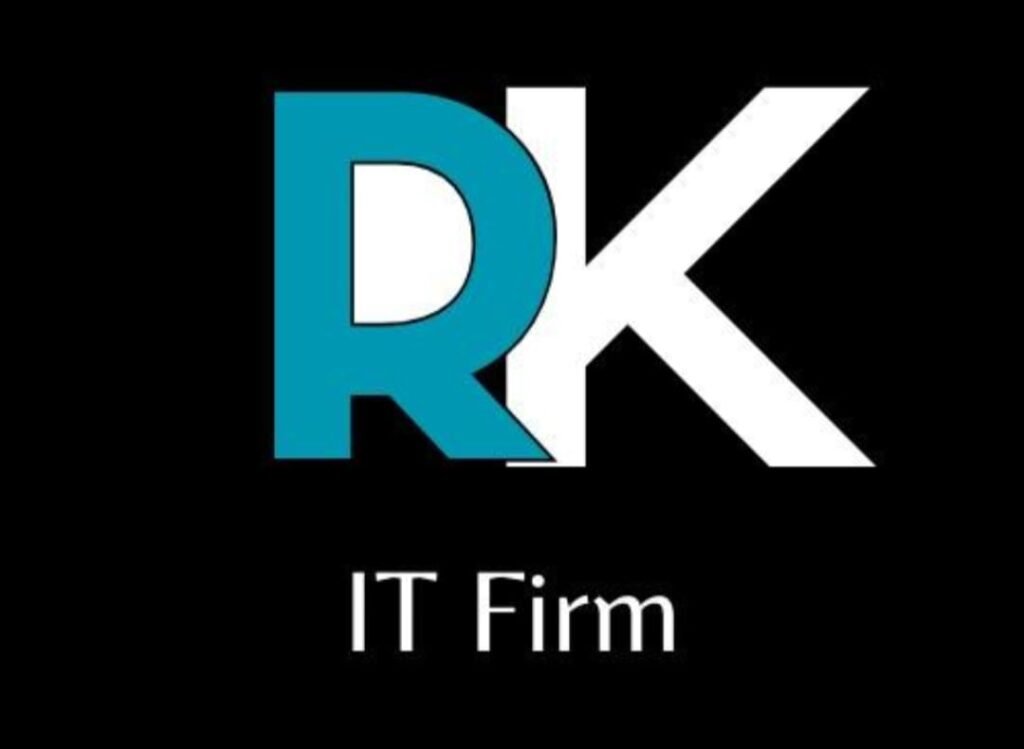Introduction: Exploring Hotel Vacancies in Australia
As Australia’s tourism and travel industries rebound, there has been a significant surge in demand for skilled professionals and entry-level workers across the hospitality sector. From luxury hotels in Sydney to regional lodges in Tasmania, the growing number of hotel vacancies in Australia presents an excellent opportunity for job seekers looking to enter or grow within the hospitality industry.
Whether you’re starting fresh, switching careers, or moving to Australia as an international candidate, now is a great time to explore the many types of hospitality jobs in Australia. In this guide, we’ll break down the types of roles, the skills needed, how to apply, and what to expect when pursuing hotel vacancies in Australia.
Key Snapshot: Hotel Careers in Australia
| Category | Details |
| Industry Sectors | Hotels, Resorts, Restaurants, Event Venues, Tourism Lodges |
| In-demand Positions | Front Desk, Room Attendants, Chefs, Bartenders, Managers |
| Entry Pathways | Internships, Seasonal Jobs, Apprenticeships, Graduate Programs |
| Job Market Growth Drivers | Tourism Recovery, Events, Staff Shortages, Regional Development |
| Application Channels | Job Portals, Direct Hotel Sites, Recruitment Agencies |
| Core Skills Needed | Communication, Time Management, Reliability, Customer Service |
| Learning Options | Certificate III/IV, RSA, Hospitality Apprenticeships, On-the-job Training |
Why Hospitality is Booming in Australia
The hospitality industry in Australia has shown strong resilience, particularly after the COVID-19 pandemic. With borders reopened and international travel returning, hotels and resorts across cities and rural areas are racing to fill thousands of positions.
Recent statistics show that hotel vacancies in Australia have increased by more than 25% compared to pre-pandemic levels. Both regional and metropolitan areas are actively recruiting, offering not only jobs but career-building opportunities, staff benefits, and even accommodation in remote or resort-based locations.
Understanding the Types of Hotel Roles Available
There are a wide variety of hotel jobs in Australia, making the industry accessible to individuals of all skill levels and experiences. From customer-facing positions to behind-the-scenes operational roles, the hospitality sector has a place for everyone.
Front Desk & Guest Services
- Hotel Receptionist
- Concierge
- Guest Services Agent
- Guest Experience Coordinator
These roles are the face of the hotel. They require strong communication skills, a welcoming attitude, and the ability to resolve guest issues calmly and professionally.
Housekeeping & Hotel Maintenance
- Room Attendants
- Laundry Attendants
- Housekeeping Supervisors
- Maintenance Technicians
These staff members play a critical role in ensuring guest comfort. Clean and properly maintained facilities have a direct impact on how satisfied guests feel.

Food & Beverage (F&B)
- Waitstaff
- Bartenders
- Chefs and Line Cooks
- Baristas
If you enjoy fast-paced environments and guest interaction, these hospitality customer service jobs are ideal. In fact, barista jobs in Australia are among the most popular entry-level roles for young Australians and WHV (Working Holiday Visa) holders.
Kitchen Operations
- Kitchen Hands
- Dishwashers
- Food Prep Assistants
These roles require physical stamina, good time management, and teamwork. Many hotel vacancies in Australia in kitchen operations offer career progression into chef apprenticeships or supervisory positions.
Events & Conference Services
- Event Coordinators
- Banquet Supervisors
- Catering Assistants
- Meeting & Conference Managers
Hotels hosting weddings, business events, and tourism conferences need dynamic professionals who can manage logistics and client relations.
Hotel Management & Administration
- Duty Manager
- Night Manager
- Operations Manager
- Revenue and Reservations Manager
These high-responsibility positions require prior experience and a solid understanding of hotel operations, budgeting, and customer service delivery.
Skills Required for Hotel Vacancies in Australia
While many hotel roles are open to beginners, hiring managers still look for certain baseline skills that are critical to providing excellent guest experiences.
Core Soft Skills
- Communication
- Teamwork
- Cultural Sensitivity
- Conflict Resolution
- Punctuality and Presentation
Industry-Specific Abilities
- POS System Knowledge
- Familiarity with Reservation Software (Opera, RMS, etc.)
- Barista and Bartending Skills
- Food Safety and Sanitation Standards
- Room Cleaning Protocols
Developing these abilities will increase your chances of securing better-paying or management-track hotel vacancies in Australia.
How to Start Your Hospitality Career in Australia
If you’re new to the hospitality industry, there are multiple pathways available to launch your career.
Step 1: Begin With Entry-Level Opportunities
Many people begin their journey through hospitality jobs with no experience. Popular starting roles include:
- Room Attendant
- Café Waiter/Waitress
- Barista
- Kitchen Hand
These are ideal roles for students, backpackers, or anyone transitioning careers.
Step 2: Enrol in Hospitality Training
Investing in hospitality training courses in Australia can help you stand out. Recognized programs include:
- Certificate III or IV in Hospitality
- Diploma of Hotel Management
- Responsible Service of Alcohol (RSA)
- Food Handling and Hygiene Certifications
Some schools, like TAFE or William Angliss Institute, offer hospitality courses with job placement, allowing graduates to secure jobs quickly after finishing their studies.

Where to Find Hotel Vacancies in Australia
Your job search should include multiple platforms for the best results. Here’s where to look:
1. Online Job Portals
- Seek
- Indeed
- Jora
- Backpacker Job Board (ideal for seasonal hotel roles)
2. Direct Hotel Applications
Go to the “Careers” page on major hotel chains like:
- Marriott
- Accor
- Hilton
- IHG
- Oaks Hotels & Resorts
Many chains allow you to apply directly to open hotel vacancies in Australia via their websites.
3. Hospitality Recruitment Agencies
Agencies specialize in placing staff into hospitality roles. Reputable names include:
- Pinnacle People
- Frontline Recruitment Group
- Hospoworld
- Hays Hospitality
4. Local Networks & Word of Mouth
Join hospitality Facebook groups or ask around at cafés and hotels in your area. Many entry-level hotel vacancies are filled before they’re ever posted online.
Resume Tips for Hotel Job Applications
When applying for hotel vacancies in Australia, your resume should highlight relevant experience and transferable skills.
What to Include:
- Past customer service or retail jobs
- Any food or beverage service history
- Certifications like RSA, First Aid, or WHS
- Volunteering at events or tourism expos
- Language skills (especially for front desk roles)
Tips:
- Keep your resume concise (1–2 pages)
- Use bullet points to describe duties and achievements
- Quantify where possible (e.g., “Served 100+ guests daily”)
- Emphasize personality traits like reliability and communication
- When applying for several positions, customise your resume for each job description to enhance your chances of success.
How to Ace Your Hospitality Job Interview
Once you apply to hotel vacancies in Australia and receive an interview invite, preparation becomes critical. Hospitality interviews often evaluate both skills and attitude.
Hospitality Job Interview Tips
1. Research the hotel
Understand their brand, values, target clientele, and services. Mention these during your interview to show initiative.
2. Highlight relevant experience
Use real-world examples that demonstrate how you’ve handled customer complaints, worked under pressure, or gone above and beyond for a guest.
3. Dress professionally
Presentation matters in hospitality. Always wear clean, neat clothing suitable for the venue’s standard.
4. Be confident and polite
Interviewers want to see if you can interact well with guests, so be personable, smile, and maintain eye contact.
5. Prepare questions to ask
Inquiring about training, career development, or team environment demonstrates real enthusiasm for the position.
Salary Expectations for Hotel Jobs in Australia
Salaries vary depending on job role, experience, shift type, and location. Here’s a breakdown of typical wage ranges:
| Position | Hourly Rate (Entry-Level) | Hourly Rate (Experienced) |
| Room Attendant | $23 – $26/hr | $27 – $30/hr |
| Receptionist | $25 – $30/hr | $30 – $35/hr |
| Kitchen Hand | $23 – $26/hr | $27 – $29/hr |
| Chef or Cook | $28 – $35/hr | $35 – $45/hr |
| Duty Manager | $60,000 – $75,000/year | $75,000 – $95,000/year |
| Hotel Operations Manager | $80,000 – $110,000/year | $110,000+ |
Many hotels offer additional benefits such as:
- Staff meals during shifts
- Discounts on accommodation
- Uniforms and laundry
- Free training or certifications
- On-site accommodation for remote jobs
Work-Life Balance in Hotel Careers
Hospitality is known for its flexible schedules, but that doesn’t always mean poor work-life balance. Increasingly, employers are offering:
- Roster predictability
- Mental health and wellbeing programs
- Guaranteed weekends off (on rotation)
- Paid rest days after peak event periods
This shift improves the overall work-life balance in hospitality jobs, especially in larger hotel chains.
Remote and Regional Hotel Job Opportunities
If you’re open to adventure, regional Australia has a thriving demand for hotel and resort workers. These roles often come with bonuses and housing options.
Regional hotspots hiring hotel staff
- Great Ocean Road (VIC)
- Margaret River (WA)
- Cairns and Port Douglas (QLD)
- Alice Springs and Uluru (NT)
- Hobart and Launceston (TAS)
Hotels in these areas often list hospitality jobs with accommodation and tax-free earnings for seasonal workers.
Visa-Sponsored Hotel Vacancies in Australia
International workers can apply for sponsored hospitality jobs in Australia through visa programs like:
- Temporary Skill Shortage (TSS) Visa (subclass 482)
- Working Holiday Visa (subclass 417/462)
- Employer Nomination Scheme (subclass 186)
Many remote and regional hotels face staff shortages and are eligible to sponsor roles such as:
- Housekeeping staff
- Chefs and cooks
- Duty managers
- Event and food service professionals
If you’re offshore or already in Australia on a student visa, targeting hotel vacancies in Australia that offer visa pathways is an excellent strategy.

Industry Trends Shaping Hospitality
Staying informed about future trends helps job seekers better prepare for what employers value most.
Key Hospitality Industry Trends
- Sustainable hotel practices (eco-friendly packaging, solar energy)
- Contactless check-in and digital key access
- Demand for locally sourced food and ethical suppliers
- Increased roles in mental wellness tourism
- Upskilling and cross-training across departments
Understanding these trends positions you well for high-growth hotel jobs in Australia.
Hospitality Courses with Job Placement Support
Education plays a key role in securing hotel vacancies in Australia, especially for international students or those starting fresh.
Top institutes offering placement assistance
- William Angliss Institute
- TAFE NSW and TAFE Queensland
- Blue Mountains International Hotel Management School
- Torrens University
- Box Hill Institute
These institutions often partner with top hotel chains to offer:
- Internship placements
- Resume writing workshops
- Interview preparation
- Direct job referrals
Getting a Hotel Job Without Experience
Worried about your lack of experience? Don’t be. Many employers offer hospitality jobs no experience required and focus more on your attitude, presentation, and willingness to learn.
How to increase your chances:
- Volunteer at local events or community kitchens
- Attend hotel open days or job fairs
- Take a short hospitality course or RSA certificate
- Create a polished CV with transferable skills
- Practice your interview pitch
Persistence and presentation are key to getting hired into entry-level hospitality jobs in Australia.
Benefits of Working in the Hospitality Industry
Beyond salaries and skills, there are many lifestyle perks to working in hotels.
- Access to job openings worldwide
- Daily interaction with people from diverse backgrounds
- Staff discounts on dining and holidays
- Opportunities to live and work in beautiful locations
- Fast career advancement in a growing industry
These advantages make hotel vacancies in Australia not just jobs, but career-launching experiences.
Final Thoughts
Whether you’re a local resident, a student, or an international applicant, the time to explore hotel vacancies in Australia is now. The hospitality industry is expanding rapidly, with countless opportunities in front desk services, kitchen operations, event management, and administration.
With flexible shifts, strong career pathways, growing salaries, and nationwide demand, the Australian hotel industry offers more than just jobs – it offers careers. By gaining relevant skills, seeking out high-growth regions, and taking initiative, you can turn any role into a long-term opportunity.
Start your journey today – Australia’s hotel sector is hiring, and you might be the next great guest experience specialist or hospitality leader in the making.
Frequently Asked Questions (FAQs)
Are hotel jobs easy to get in Australia?
Yes. Due to ongoing staff shortages and high turnover, hotel vacancies in Australia are often available. With the right attitude and training, candidates can secure roles quickly.
What is the best way to apply for hotel jobs?
Apply online through Seek, Indeed, or direct hotel websites. Use a strong resume and follow up with a polite email or in-person visit.
Can I start working in hotels on a Visa of Working Holiday?
Absolutely. Many hotels in regional or tourist-heavy areas actively hire WHV holders for housekeeping, kitchen, or guest services roles.
How do I grow in a hotel career?
Start in entry-level roles and pursue additional training or promotions. Larger hotels often offer internal development and career pathways.
Do hotels offer sponsorship to international candidates?
Yes, especially in regional areas where skills shortages are acute. Chefs, housekeepers, and managers are among the most commonly sponsored roles.




